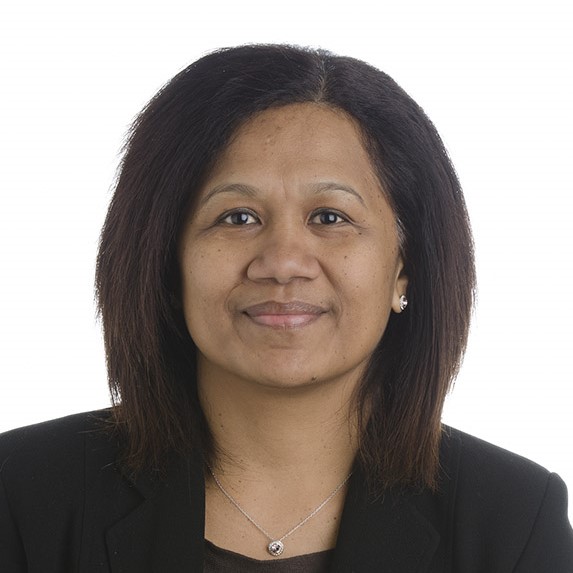 Caroline Waqabaca
Caroline Waqabaca
Chief Manager Financial System Development &Acting Deputy Governor
Reserve Bank of Fiji
Transition Economy Program (‘07)
Please tell us about your career path so far. What is your area of specialization and how did you come to work in this area?
I began my career at the Reserve Bank of Fiji - the central bank of the Pacific island country of Fiji - in 1990, in the economics and research department, where I trained as an economist. Through the years, I progressed to the role of Chief Economist, heading the Economics group at the Bank from 2010 to 2017. From 2013-2015, I was seconded to the International Monetary Fund (IMF) as Advisor to the Executive Director in the South East Asia Voting Group (SEAVG) office.
In the subsequent years, from 2018 to 2022, I served as the Head of Financial Markets, and in 2023, I transitioned to lead the Financial System Development Group. This diverse career trajectory has provided me with a comprehensive understanding of economic dynamics and financial systems.
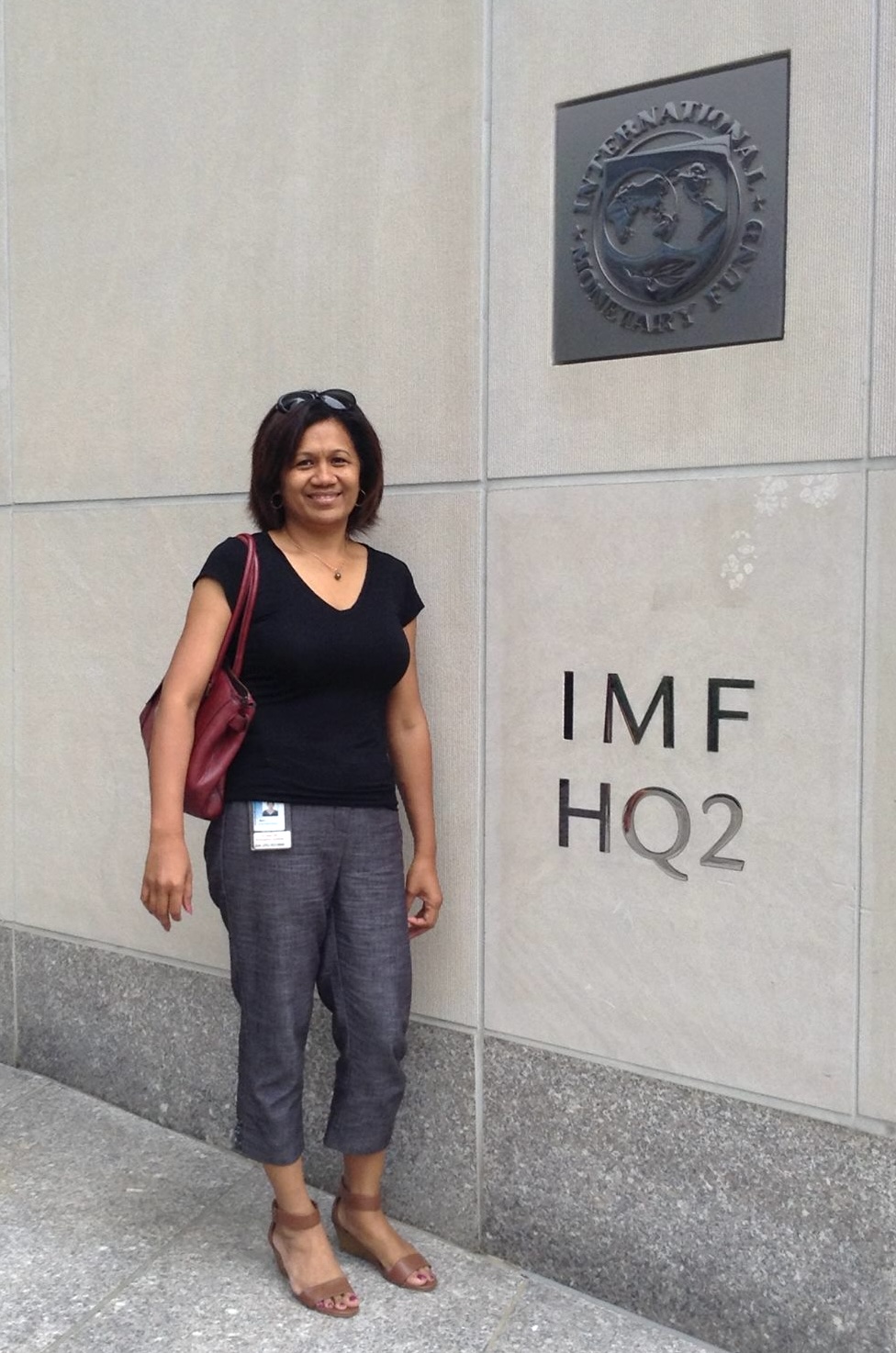
At the IMF HQ2 in Washington DC, 2015
You are currently serving as Chief Manager Financial System Development as well as acting Deputy Governor of the Reserve Bank of Fiji. Please tell us about your main roles and responsibilities.
In my capacity as Chief Manager of Financial System Development, my key responsibilities revolve around policy formulation and advisory roles in areas such as financial inclusion, consumer protection, and the oversight of national payment and settlement systems.
Simultaneously, in my role as acting Deputy Governor, I actively assist the Governor in executing the statutory obligations of the Reserve Bank. This involves overseeing the efficient delivery of the Bank's operations and functions, as well as providing support and management to the leadership team.
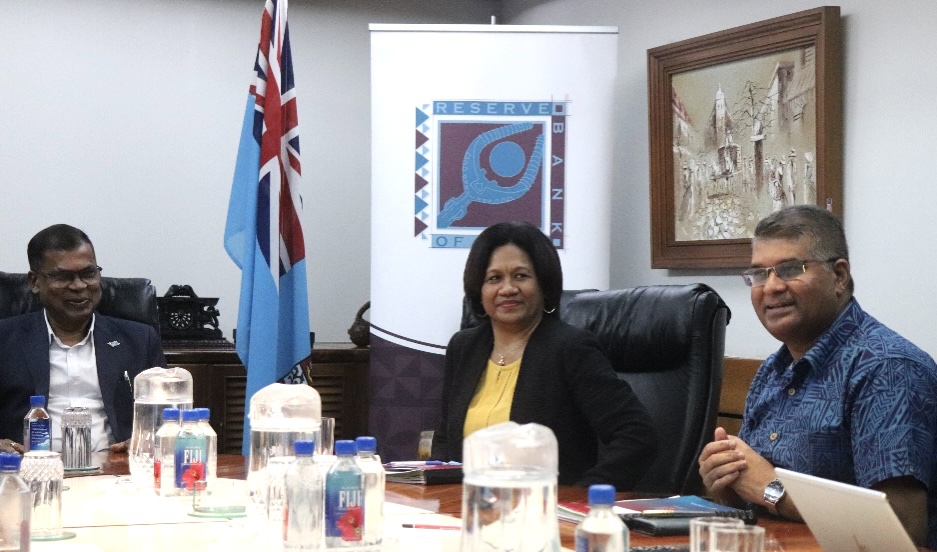
With the Minister for Finance, Honourable Biman Prasad (left) and Governor Ariff (right),during the visit to the central bank by the Honourable Minister to meet with the Board Directors.
In your current capacity, what do you see as the main opportunities and challenges for Fiji over the course of the next five to ten years?
As a small island developing economy that is reliant on imports of goods and tourism, current key challenges would include global uncertainty which could adversely impact the economy. Climate change and cyber risk are two other key challenges facing us as a highly vulnerable country and dependent on trading partner support.
Conversely, a notable opportunity for Fiji lies in the ongoing digitalization of the economy. This trend, coupled with increased innovation and technological advancement post-COVID, presents a promising avenue for growth. To leverage this opportunity, we have already taken steps to modernize our payment system and digitalize our payments and services, aiming to enhance accessibility and benefit to the broader population.
What are some of the biggest challenges you face in your work? And what have been the most interesting or rewarding aspects of your career thus far?
One of the key challenges in my role is navigating culture change, an inevitable aspect given the rapidly evolving methods of operation and the influx of a new generation of workers with distinct expectations. In terms of career highlights, I find immense satisfaction in the ability to approach issues from a macroeconomic perspective, tracing the impact of policies across various sectors of the economy. Furthermore, I've acquired the challenging skill of balancing the diverse objectives of the central bank, specifically addressing the simultaneous goals of financial stability and growth.
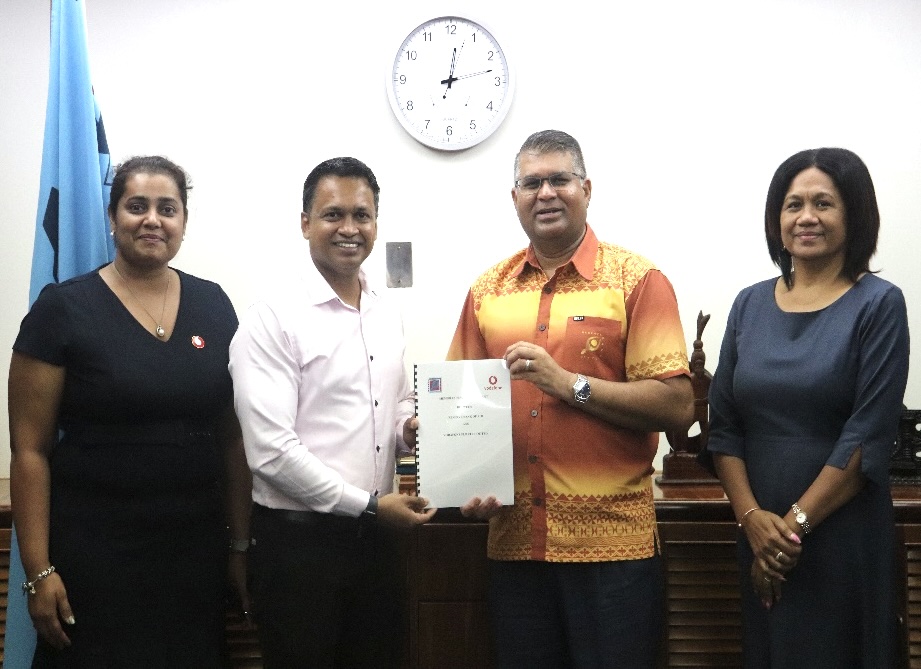
With Reserve Bank Governor Ariff Ali during the signing of a Memorandum of Agreement between the Reserve Bank of Fiji and Vodafone to support the Viti Kart Online platform for MSMEs.
What led you to GRIPS? What is the most important thing you got out of your studies, and how has your experience at GRIPS prepared you for future endeavors?
I was nominated by my supervisor for the GRIPS course. Apart from the academic knowledge gained, I had the privilege of immersing myself in the richness of Japanese culture through cultural exchanges and friendships formed during my academic term. The diversity of cultural groups on campus significantly enhanced our awareness of the opportunities and realities of the bigger world out there.
Have you had any involvement, professional or otherwise, with Japan since your graduation?
I frequently visit Japan due to my spouse's role to Fiji's Ambassador to Japan. Also, I participated in a panel discussion as part of JISPA's 30th Anniversary event, held in Tokyo in November 2023.
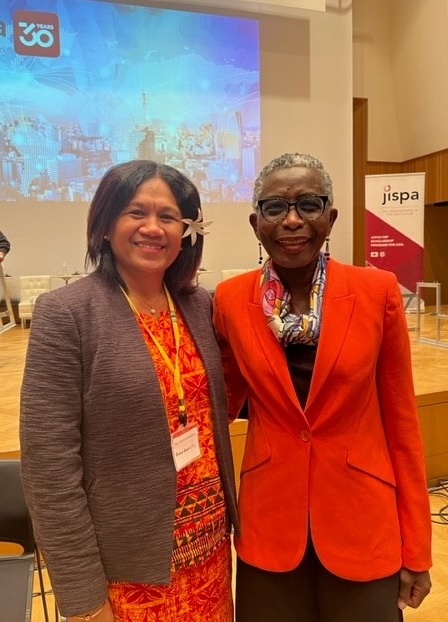
With IMF Deputy Managing Director Antoinette M. Sayeh at the Japan-IMF Scholarship Program for Asia (JISPA) 30th Anniversary Event in Tokyo, November 2023.
How do you maintain a balance between your work and the rest of your life? And what is your favorite thing to do when you are not working?
I try to maintain discipline, ensuring that I prioritize my work during official working days and dedicate quality time to my family during evenings and weekends. My favorite way to unwind is by spending relaxing moments at home with my family or going on holidays together.
What are some of your fondest memories of your time spent at GRIPS? And what do you miss about Japan?
I will always remember the daily routine of commuting through sun, rain, or cold, taking the train from Odaiba to Roppongi and back — an almost robotic yet memorable experience. The friendliness and approachability of the professors also left a lasting impression, making our studies enjoyable.
I will always fondly remember the punctuality of the trains. I'll miss my weekly ritual of visiting the bookstore every Friday to find a good weekend read. Exploring the beautiful temples and the various places beyond Tokyo, with their rich heritage and history, is something I'll miss as well.
If you could give one piece of advice to anyone considering studying at GRIPS what would it be?
Studying in Japan is a unique opportunity, so work diligently to excel academically while seizing every chance to immerse yourself in the rich Japanese culture.
How would you like to maintain involved with the School? What do you expect from GRIPS as an alumnus and do you have any suggestions on how to further utilize the GRIPS alumni network?
I currently receive notifications of seminars from the office and find them valuable. Additionally, I would appreciate information on fellow alumni from my country to help establish our own network while remaining connected to the broader GRIPS community.





